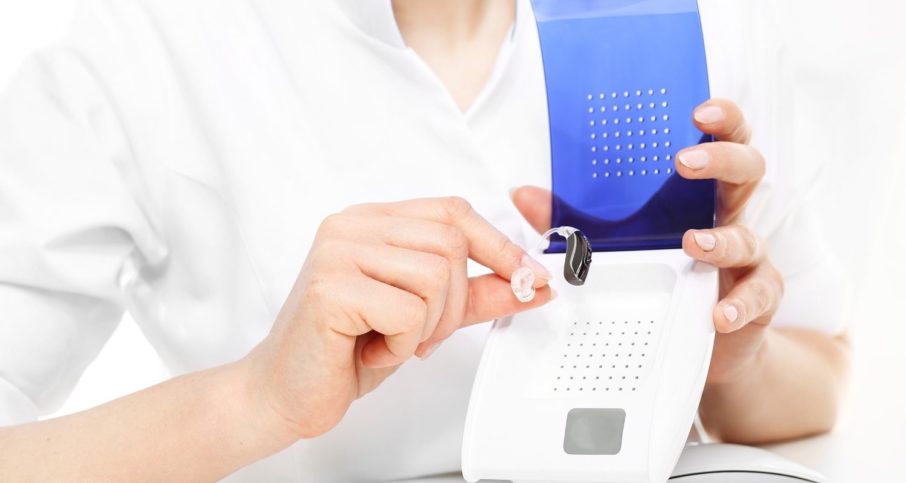Hearing aids are wonderful devices. They can help improve your quality of life by enabling you to hear conversations and the sounds of nature and music more clearly. Yet those tiny devices need some care – moisture can destroy hearing aids by causing corrosion and other damage to electronics.
Moisture is the leading cause of damage to hearing aids. Humidity and other sources of moisture are responsible for more than 80% of all hearing aid repairs. Why are hearing aids so susceptible to moisture damage? The short answer is that water can cause corrosion or damage to the tiny electronic components used in hearing aids.
How moisture can damage hearing aids
Humidity (moisture in the air) is everywhere, impossible to avoid. On warm days, the humidity can cause sweat, which creates a moist environment near your ears where your hearing aids are located. The most common type of moisture-related hearing aid damage is caused by condensation. The warm air created by hearing aid batteries can cause any humidity in the air to condense on the surface of your hearing aid — just as a cold glass will fog up if you breathe on it. This condensation can get inside your device and reach its delicate electrical components.
Here are some tips on how to avoid moisture with your hearing aids.
Keep them out of the bathroom and swimming pool.
Keep your hearing aids out of the bathroom, as the humidity from a shower could damage the electronic components. Don’t wear your hearing aids in a swimming pool or hot tub (the chlorine and other pool chemicals can degrade the components).
Clean your hearing aids regularly.
Use the tools provided by your audiologist to clean the exterior of your hearing aids at least once a week — more if you use them daily. Wipe down the exterior of the device with a clean, dry cloth. Take care not to wipe any moisture into openings that could damage internal components. Don’t use liquid cleaners or solvents, which may damage plastic parts. Moisture is much less likely to build up in a clean pair of hearing aids than in those that haven’t been cleaned in a while.
Use a dehumidifier to prevent moisture buildup in the bedroom.
There are many small, inexpensive dehumidifiers on the market that you can use to keep moisture out of your hearing aids. Most of them require electricity, but some run on batteries and can be used while traveling or working.
When you take your hearing aids out at night to sleep, wipe them down with a clean towel and place them in a small drying box to drain any moisture that may have adhered to them.
Electronic drying boxes use warm, dry air to dry your hearing aids. Electronic drying boxes are a cost-effective and low-maintenance moisture treatment. If you have rechargeable hearing aids, your charging station can often double as a drying box — check with your hearing doctor to make sure.
There are also non-electronic hearing aid choices that may be a good fit for campers, regular travelers, and anybody else who requires effective drying when away from an electrical outlet. Desiccants are used in non-electric dryers to remove moisture from your hearing aid. Desiccants for non-electronic hearing aid dryers come in various formats, including silica packets found in specific packing. Desiccants can be found in pellets, linings, or discs at most medicine stores. Using a desiccant to encase your hearing aids overnight will eliminate moisture, making them an excellent low-tech solution.
Avoid extreme temperatures.
Extremes in temperature can harm a hearing aid and its batteries. The cold itself isn’t always harmful, but condensation caused by temperature fluctuations can harm interior components. Because significant temperature swings are prevalent in the winter, moisture is present even when it isn’t snowing or pouring.
If it’s 20 degrees Fahrenheit outside and you’re stepping outside, you’ll probably be wrapped up from head to toe and wearing a cap over your ears. However, because the heat is turned on in your house, it might be approximately 50 degrees warmer. The temperature shift might cause condensation on your hearing aids, even if you remove your coat and other winter gear.
The key to keeping your hearing aids dry is moisture avoidance. If you follow these steps, you can keep your hearing aids dry and functioning correctly for years to come.


